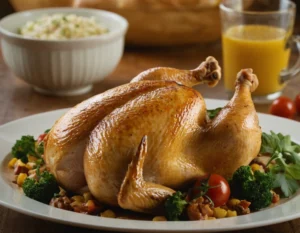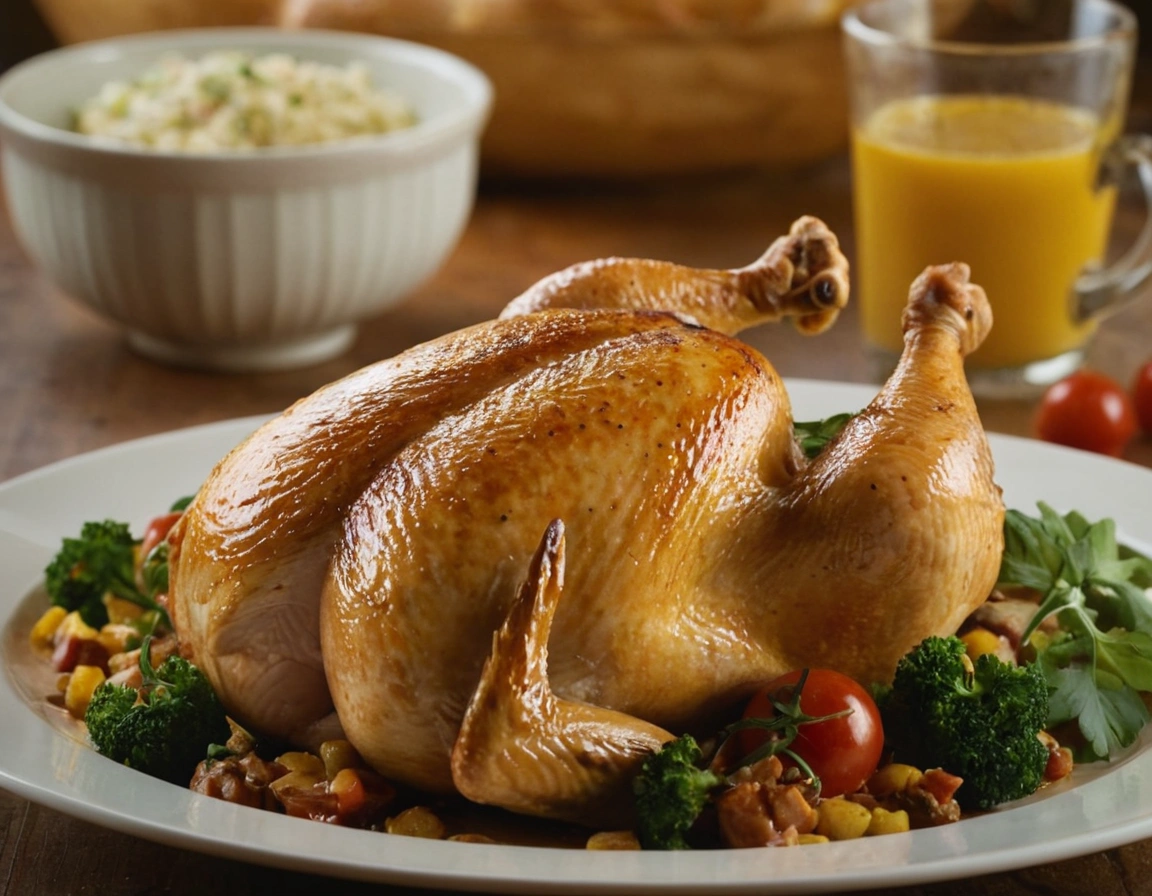Essential Tips for a Safe Post-Surgery Diet
 Introduction
Introduction
If you’ve recently had bariatric surgery, you’re likely adjusting to significant changes in your diet. One of the common questions that arise is, “Can you eat chicken after bariatric surgery?” Chicken is a popular protein source, but whether it’s suitable for your new dietary needs can depend on several factors. In this comprehensive guide, we’ll explore how to safely incorporate chicken into your post-bariatric diet, addressing various dietary stages and offering practical advice to help you navigate your new eating habits effectively.
Understanding Bariatric Surgery and Its Dietary Implications
Types of Bariatric Surgery and Their Impact on Diet
Bariatric surgery includes several procedures designed to assist with weight loss by altering the digestive system. Each type has unique dietary implications:
- Gastric Bypass (Roux-en-Y): This procedure creates a small stomach pouch and bypasses a portion of the small intestine. The result is reduced food intake and nutrient absorption, necessitating a carefully managed diet to prevent deficiencies and ensure adequate nutrition.
- Sleeve Gastrectomy: Involves the removal of a large portion of the stomach, leaving a sleeve-like structure. This reduces stomach capacity and affects digestion, requiring adjustments in food choices and portion sizes.
- Adjustable Gastric Band (Lap-Band): Places a band around the upper part of the stomach to create a small pouch. This method requires careful monitoring of food intake and texture to avoid complications.
Understanding these procedures helps in making informed decisions about incorporating chicken and other foods into your diet.
How Bariatric Surgery Affects Your Digestive System
Bariatric surgery changes how your body processes food. Key alterations include:
- Reduced Stomach Capacity: With a smaller stomach, you’ll need to eat smaller portions and focus on high-nutrient foods.
- Altered Digestion: Changes in digestion affect how your body absorbs nutrients, making it crucial to choose easily digestible and nutrient-dense foods.
The Role of Protein and Chicken in Your Post-Bariatric Diet
Why Protein is Vital After Bariatric Surgery
Protein is essential after bariatric surgery for several reasons:
- Muscle Maintenance: Helps prevent muscle loss during rapid weight loss.
- Wound Healing: Supports healing of surgical sites.
- Overall Health: Provides the necessary nutrients for overall bodily functions.
Choosing high-quality protein sources ensures that you meet your nutritional needs while adhering to dietary restrictions.
Is Chicken a Good Protein Source for Post-Bariatric Diets?
Chicken is a popular protein source, but its suitability for your diet depends on preparation and dietary stage:
- Nutritional Benefits: Chicken is high in lean protein and low in fat, making it a favorable choice for many.
- Digestibility: Proper preparation is crucial to ensure that chicken is easy to digest and well-tolerated.
Can You Eat Chicken After Bariatric Surgery? Exploring Dietary Stages
Liquid Stage and Chicken
During the liquid stage, which usually lasts for the first few weeks after surgery, only clear liquids and broths are allowed. Chicken, in its regular form, is not suitable due to its solid nature. However, you can include chicken in the following ways:
- Chicken Broth: A clear, liquid option that provides some flavor and minimal protein content.
| Liquid Stage Foods | Examples |
|---|---|
| Clear Liquids | Water, broths, clear juices |
| Chicken Broth | Homemade or store-bought chicken broth |
Pureed Stage: Introducing Chicken Safely
The pureed stage involves consuming foods blended to a smooth consistency. Chicken can be introduced carefully:
- Blended Chicken: Ensure the chicken is well-cooked, blended thoroughly, and mixed with liquids for a smooth texture.
- Portion Size: Start with small amounts to gauge tolerance.
| Pureed Stage Foods | Examples |
|---|---|
| Blended Meats | Pureed chicken, turkey |
| Soft Fruits | Applesauce, blended peaches |
Soft Foods Stage: Can You Include Chicken?
In the soft foods stage, you can begin incorporating chicken more regularly:
- Preparation Methods: Chicken should be tender and moist. Cooking methods such as baking, steaming, or slow-cooking are recommended.
- Texture: Avoid tough or dry parts; aim for soft, easily chewable pieces.
| Soft Foods Stage Foods | Examples |
|---|---|
| Tender Chicken | Baked or steamed chicken breast |
| Soft Vegetables | Steamed carrots, mashed potatoes |
Solid Foods Stage: Eating Chicken After Bariatric Surgery
During the solid foods stage, most solid foods, including chicken, can be included in your diet:
- Lean Cuts: Opt for skinless chicken breast or thigh for lower fat content.
- Small, Chewed Pieces: Ensure chicken is cut into small, manageable pieces to prevent digestive issues.
- Low-Fat Preparation: Avoid frying; instead, use healthier cooking methods.
| Solid Foods Stage Foods | Examples |
|---|---|
| Lean Proteins | Skinless chicken breast, fish |
| Healthy Grains | Quinoa, brown rice |
Tips for Eating Chicken Safely Post-Bariatric Surgery
Preparation Methods for Easy Digestion
- Baking and Grilling: Preferred methods to maintain a healthy profile and prevent excess fat.
- Slow Cooking: Makes chicken tender and easier to digest.
- Avoid Frying: Reduces fat and calories, which can be harder to digest.
Portion Control and Monitoring
- Small Portions: Start with small amounts and gradually increase as tolerated.
- Regular Monitoring: Keep track of how your body responds and adjust portions or preparation methods accordingly.
Adjusting Chicken Intake Based on Personal Tolerance
- Listen to Your Body: Pay attention to any discomfort or digestive issues and modify your intake as needed.
- Consult Healthcare Providers: Regularly check with dietitians or your bariatric surgeon for personalized advice and adjustments.
Common Concerns and FAQs About Eating Chicken After Bariatric Surgery
Q: What should I do if chicken causes digestive discomfort?
A: If you experience discomfort, consider modifying how you prepare chicken (e.g., using moist cooking methods) or reducing portion sizes. Consult your healthcare provider for specific guidance.
Q: Can I eat fried chicken after bariatric surgery?
A: It is best to avoid fried chicken as it is high in fat and may be difficult to digest. Stick to baked, grilled, or steamed chicken.
Q: How can I ensure that chicken is part of a balanced post-bariatric diet?
A: Combine chicken with a variety of vegetables and whole grains to create a balanced meal. Ensure that you are also meeting your other nutritional needs through diverse food choices.
Q: When can I start eating chicken regularly after bariatric surgery?
A: You can typically start eating chicken regularly once you reach the solid foods stage. Follow your surgeon’s or dietitian’s advice on when and how to introduce chicken into your diet.
Q: Is there a way to make chicken more digestible?
A: Yes, cooking chicken until it is very tender and moist, and cutting it into small pieces can make it easier to digest. Additionally, using soft cooking methods like slow cooking or steaming can help.
Conclusion
In summary, the question “Can you eat chicken after bariatric surgery?” is answered by considering the dietary stages and proper preparation methods. Chicken can be a valuable part of your post-bariatric diet if introduced at the right time and prepared in a way that suits your digestive needs. By following the guidelines outlined in this guide, you can safely include chicken in your meals and support your recovery and long-term health goals.
Additional Resources
- Bariatric Chicken recipe: Explore additional articles and resources for more information on managing your diet after surgery.
- Expert Advice on Eating Chicken After Bariatric Surgery: Contact dietitians and bariatric surgeons for personalized recommendations and support.


4 thoughts on “Can You Eat Chicken After Bariatric Surgery?”